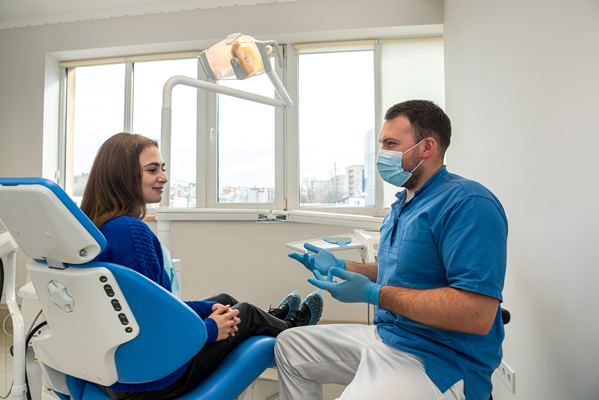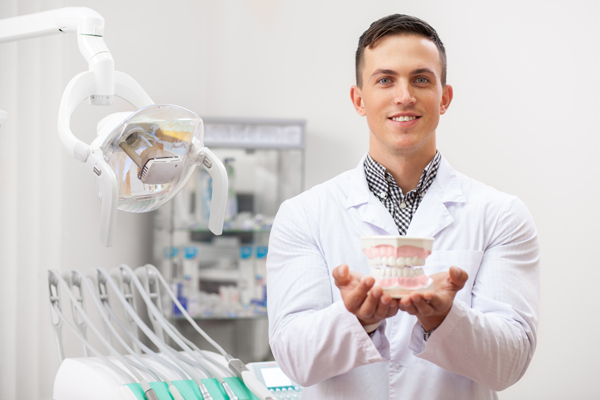Popular Treatments for Sleep Apnea

Sleep apnea is a medical condition where the patient's airways become obstructed during sleep. It leads to snoring and, in certain situations, life-threatening medical conditions. This medical issue often causes an inability to get quality sleep and the results of sleep deprivation during the day.
Fortunately, there are some options available when it comes to treating sleep apnea.
Treatment options for sleep apnea
1. CPAP
Continuous Positive Airway Pressure devices are one of the primary ways of treating sleep apnea. It is a machine that feeds the patient with pressurized air that keeps the airways open as the person sleeps. Keeping the airways open helps to prevent any interruptions to the person's breathing while sleeping.
Many CPAP machines are small enough to fit on a drawer next to the patient's bed, and a piece of flexible tubing and a mask is worn. There are a variety of options when it comes to the type of mask the patient decides to go with like nasal pillows and masks that cover the mouth and nose.
2. Oral appliances
Oral appliances can be used to treat mild to moderate cases of sleep apnea. These are mouth-guard like devices that are used to keep the patient's airways open during sleep. Two main types of oral devices are used to address sleep apnea: tongue retaining devices and mandibular advancement appliances (MADs).
MADs are worn while the patient sleeps, and the device pushes the wearer's jaw forward, opening up the upper airway. A tongue retaining device has an attachment that keeps the tongue from falling back into the airway.
Oral appliances are customized for each patient. The dentist takes a digital or physical impression of the patient's mouth, and the dimensions are sent to a laboratory where the device is made. The dentists will contact the patient when the device is ready for a follow-up appointment and educate the person on adequately using it. Oral appliances are easy to use and carry around.
3. Surgery
Some instances of sleep apnea require surgical treatments. The exact type of surgical procedure used varies depending on each particular situation, but the goal is always the same: clearing up the person's airways.
This is usually done by the removal of soft tissues that may be blocking the airways or the correction of nasal deformities like a deviated septum that can restrict the airway. Surgical treatments are typically considered after other treatments have failed.
Surgical treatment might be done to remove polyps, adenoids, and enlarged tonsils. There are also surgical treatments that can be done to prevent the tongue from falling back into the airways.
4. Weight loss
One of the causes of sleep apnea is being overweight. People whose airways become restricted during sleep because of their weight can treat it by shedding some pounds. Losing weight will improve the breathing of anyone who is overweight.
We are ready to help! Contact us today.
Find yourself dealing with sleep apnea? Contact one of our dentists to discuss these and other options. We are ready to help guide you in making the best decisions for your sleep apnea and health.
Call (717) 708-9010 today to reach G.J. Palmieri, DDS & Associates, LLC.
Recent Posts
Natural teeth serve a very important function, and a preventive dentist can ensure they stay protected. They are the first line of the digestive system as they are used to grind down food into smaller bits that can be easily swallowed. Teeth also help in speech and communication. They are necessary to pronounce certain words,…
The general rule is that people visit their dentist in Lancaster twice yearly for a checkup, deep cleaning and oral screening. The visit also presents a chance to be proactive by asking questions related to oral health, recommended treatments and concerns about cosmetic treatments.It is helpful to make a list of questions before going to…
A dental cleaning is a vital part of maintaining good oral health. Nonetheless, many individuals still skip their dental cleanings due to a busy schedule or feeling confident that oral hygiene is under control. At-home oral hygiene is a great way to maintain good oral health; however, the help of a professional general dentist is…
A general dentist will tell you that the habits you develop play a vital role in the quality of your long-term oral health, and good daily habits can significantly reduce the risk of cavities, gum disease and other common oral health concerns. By understanding the most effective habits and making an effort to implement them…


